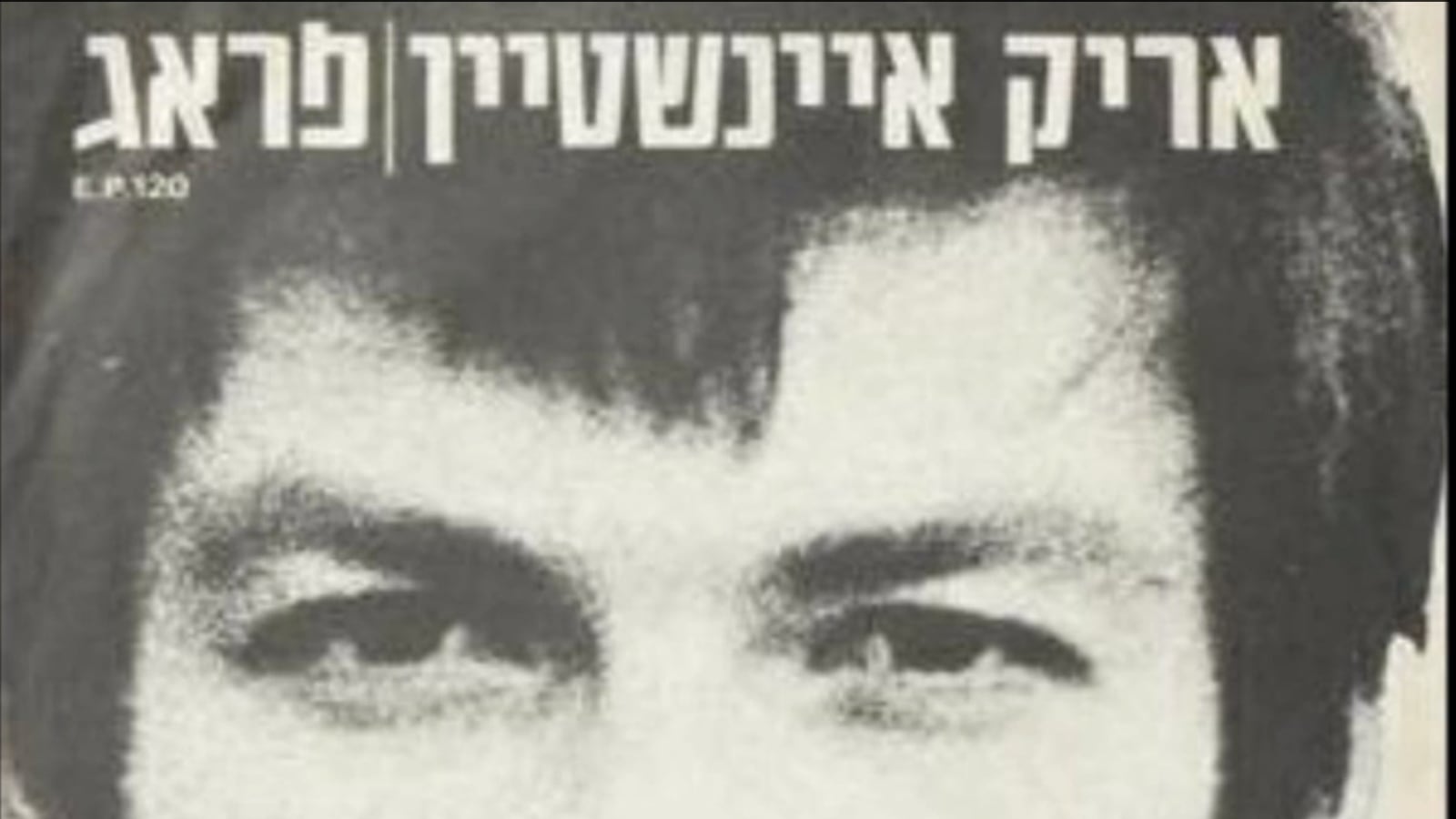Along with the usual globalizing 1980s pop fare of Duran Duran, Thompson Twins, and R.E.M., the soundtrack to my teen years included a heavy dose of Israeli rock. Of the many Israeli artists I and many others of my generation listened to growing up—Shlomo Artzi, David Broza, Shalom Hanoch, and bands like Kaveret and Mashina—Arik Einstein, who died yesterday at age 74, is the first to depart. The loss is significant.
I’m aware that there is both pride and regret in these feelings of mine: pride at being one of a slice of Diaspora Jews to have forged their own memories of Arik Einstein’s music, and regret that when it comes to deep, cultured and textured connection with Israel, Diaspora Jews have a long way to go.

Writing in these pages, Emily L. Hauser suggests that “It’s hard to explain to Americans, even those familiar with his work, who Arik Einstein...was...in Israeli culture.” Certainly, she’s correct, and cultural gulfs across our checkered globe are natural and understandable. But when it comes to the cultural—not necessarily political, for a change—relationship between Israel and Diaspora Jews, it shouldn’t have to be this way.
Among other offerings, Einstein’s 1986 album, Love Being at Home, graced my collection of scratchy cassettes. My aunt and uncle, who had emigrated to Israel on the eve of the 1973 War, had brought it to me on one of their visits to Canada, and I listened to it incessantly.
But before that album hit the shelves, I grew up singing one of Einstein’s greatest songs: the simple, haunting and infectious “Ani v’Atah.” Though the actual grammatical phrasing suggests Buber’s “I-and-Thou” (itself an evocative link: when we look into the face of the Other, anything is possible), Einstein’s “You and I will change the world” is a catchy, folksy, never sappy, always singable anthem of hope. I grew up belting out that song at summer camp, with my friends, at parties while I hacked along on my guitar, and later, to my own children. Sometimes, even before I was aware that Einstein was aging and ailing, I would post a vintage link to a video performance of Arik singing it. It helped me get through my work day, while evoking some bonding nostalgia among the few handfuls of friends I have who also knew Arik through his music.
I didn’t always connect “Ani V’Atah” with Arik Einstein the person, so integral that song seemed to be to my Jewish, Hebrew and musical identity. There seemed to be no more need to identify that song consciously with its writer than there would be to invoke Pete Seeger, and later, Joe Hickerson, every time I sing Where Have All the Flowers Gone. Like many great poets and lyricists, Arik seemed to let his words humbly slip into the soul without great fanfare. And like all markers of cultural identity, words and tunes often exist inside of us, unexamined.
Last night, as I was listening to the title track of Arik Einstein’s Love Being at Home, I invited my 7-year-old son to join me. Above the drum line and applause, he easily picked out the lyrics: “I love to be at home, with my tea and lemon and old books.” Like Arik, I too love being home—in my case, with my coffee and milk, with my old and new books and my laptop, my kids, to whom I speak only Hebrew, and my husband. Though the loss of Arik reminds us that home has so many meanings: the homes where we were born, the homes we create as adults, and the homes we imagine when we peer towards our declared homeland. The trouble is, if we don’t understand each other—if we let the music, art and culture of Israel flourish in a silo—we in the Diaspora, across seas and oceans, will be all the poorer, our condolences for a nation’s cultural losses, when they occur, a mere gesture.






